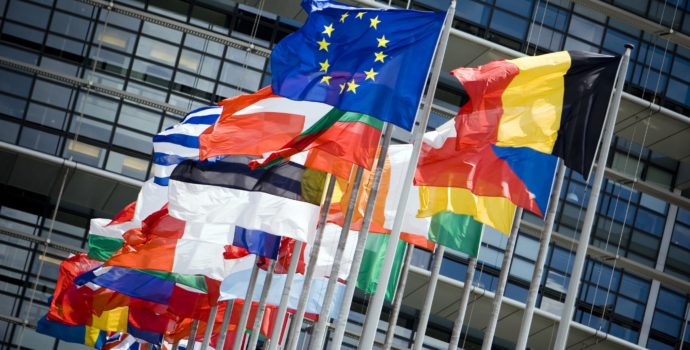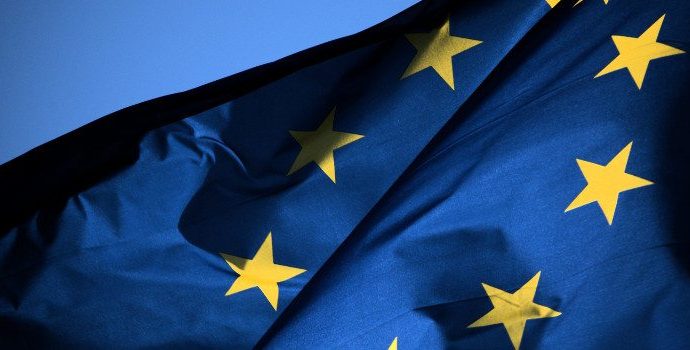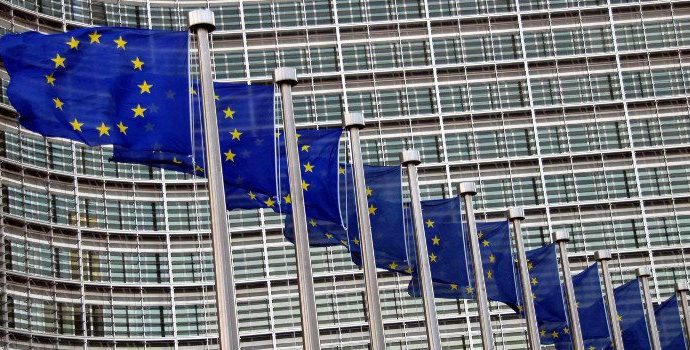European Commission Daily News 29th April

Biotechnologies: Commission seeks open debate on New Genomic Techniques as study shows potential for sustainable agriculture and need for new policy
Today, the European Commission published, at the request of the Council, a study on New Genomic Techniques (NGTs). The study shows that NGTs, which are techniques to alter the genome of an organism, have the potential to contribute to a more sustainable food system as part of the objectives of the European Green Deal and the Farm to Fork Strategy. At the same time, the study finds that the current GMO legislation, adopted in 2001, is not fit for purpose for these innovative technologies. The Commission will now start a wide and open consultation process to discuss the design of a new legal framework for these biotechnologies. Commissioner for Health and Food Safety, Stella Kyriakides, said: ”The study we publish today concludes that New Genomic Techniques can promote the sustainability of agricultural production, in line with the objectives of our Farm to Fork Strategy. With the safety of consumers and the environment as the guiding principle, now is the moment to have an open dialogue with citizens, Member States and the European Parliament to jointly decide the way forward for the use of these biotechnologies in the EU.” A press release is available online.
Analysis highlights quality of public administration as key success factor towards recovery, green and digital transitions
Today, the Commission has published a detailed analysis on the role of national public administrations in meeting EU priorities. The report also covers the challenges these administrations face as well as the Commission’s experience in helping them boost their performance and capabilities. Commissioner for Cohesion and Reforms, Elisa Ferreira, stated: “The quality of public administration is of utmost importance to enable innovation and economic growth. Public administrations translate EU law and programmes into concrete actions with long-term effects on economic, social and territorial cohesion, providing essential services and managing public spending. A deficient public administration leads to high economic and social costs. The current administrative systems were designed in times of relative stability and the coronavirus crisis demonstrates that public administrations need a deep organisational, technological and cultural transformation to be more flexible and resilient. The Commission can help in achieving this goal to the benefit of the current and the next generations of European citizens.” Public administration implement directly about 35% of the EU budget and its quality is crucial for recovery and sustainable growth. The Commission is actively supporting Member States to improve the quality of public administrations, through the identification of critical issues, the support in the design and deployment of reforms, the provision of capacity-building tools and of (peer-based) guidance, the facilitation of knowledge exchanges, financial support and the promotion of research and innovation. The full analysis is available here.
Ocean conservation: EU leads the international effort to establish new Marine Protected Areas in Antarctica
Yesterday, Commissioner for Environment, Oceans and Fisheries Virginijus Sinkevičius hosted a ministerial meeting to build support among the Members of the Commission for the Conservation of Antarctic Marine Living Resources (CCAMLR) for the designation of new Marine Protected Areas (MPAs) in the Southern Ocean, in particular the EU proposals to establish MPAs in East Antarctica and in the Weddell Sea. The meeting was key in shaping a joint strategy to work together towards the adoption of new MPAs in CCAMLR and to present the Commission’s actions under the European Green Deal that contribute to protecting the Antarctica. Speaking after the meeting, Commissioner Sinkevičius said: “Biodiversity loss and the climate crises are going faster than we had ever anticipated. It is critical to act now, if we are to turn the tide and conserve the rich and vulnerable marine life of the Southern Ocean. I am glad that we all expressed our commitment today in a joint declaration for the world’s largest marine protected area which would cover more than 3 million km2. I particularly want to thank the U.S. and New Zealand for joining the other active co-sponsors in protecting that area around Antarctica.” The ministerial meeting was a success in bringing further support for the Marine Protected Areas in East Antarctica and in the Weddell Sea with co-sponsorship announced by the United States and New Zealand. The designation of new Antarctic marine protected areas remains a high priority for the EU and its Member States and is a key deliverable of both the EU’s Biodiversity Strategy 2030, adopted last May, and of the EU’s International Ocean Governance agenda. More information is in our press release.
Climate Diplomacy: Executive Vice-President Frans Timmermans meets COP26 President in London
Today, Executive Vice-President Frans Timmermans travels to London to meet with Mr Alok Sharma, President of the COP26 climate conference which will take place in Glasgow in November. This meeting in London follows a visit by Mr Sharma to Brussels in February, and a series of videoconference calls. Mr Timmermans and Mr Sharma will discuss the preparations for COP26 negotiations, the key objectives of the EU for the conference, and their respective outreach to other international partners. They will take stock of announcements made at the Leaders Climate Summit organised by President Biden on 22-23 April, and discuss how to build on the international momentum in the six months leading up to COP26. The Commission is committed to making this crucial year a tipping point for climate action, the clean energy transition and nature protection. After reaching agreement on the European Climate Law last week, the EU is now working on its ‘Fit for 55′ legislative package to be presented this summer, adapting EU legislation to the ambitious target of reducing emissions by at least 55% by 2030, compared to 1990 levels.
EU and Republic of Korea hold high-level trade meeting
This afternoon, Executive Vice-President and Trade Commissioner, Valdis Dombrovskis, will meet the Republic of Korea Minister for Trade Yoo Myung-hee for a high-level meeting to take stock of progress made since a landmark trade agreement was signed a decade ago. The EU-Republic of Korea Trade Agreement remains a bedrock of our bilateral economic relationship and a strong foundation to help our economies recover and grow from the COVID-19 pandemic. This agreement not only boosts trade but also promotes social and environmental values. At today’s 9th meeting of the Trade Committee, the two parties will agree on the next steps regarding Republic of Korea’s compliance with the recommendations of the panel of experts on the labour dispute initiated by the EU under the Trade and Sustainable Development Chapter. Moreover, the two sides will confirm the extension of the list of Geographical Indications (GIs), with products such as Irish Cream, Kalamata olive oil, and Pecorino Toscano to be protected under the agreement. Finally, a number of amendments to the automotive annex of the agreement will be adopted. These amendments reflect the technological and regulatory developments in the automotive sector and are another example of the continuous constructive work between the two sides. You can find more information on the agreement here.
Read the European Commission Daily News in full here.



